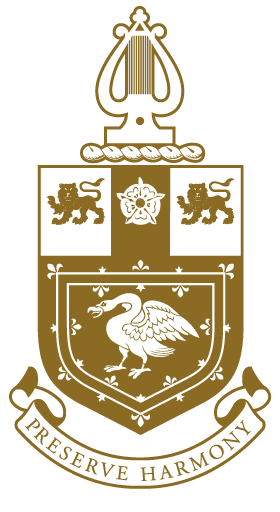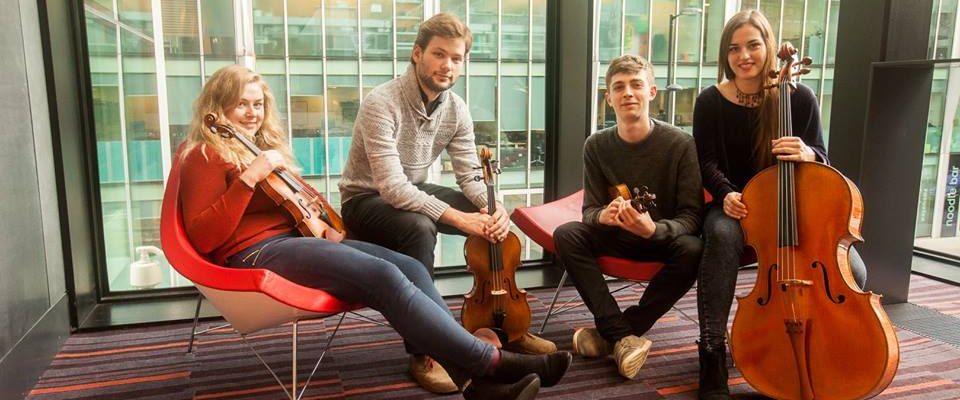Young Artist Interview: Abel Salaocoe
Growing up in the South African township of Sebokeng has always been at the centre of my being, something I always take with me as I find myself in Manchester and travelling the world as a cellist. Sebokeng is forever drawing from its vibrant and creative qualities of creating the most beautiful art out of nothing. As a child, we made miniature cows out of clay from the river and painted them different colours so we could sell them, we made toy cars with cartons of milk and used fencing materials to engineer a steering mechanism, and we made our own instruments out of oil barrels and sung and made stories all day. The sense of community is overwhelming, held together by the idea of the African proverb: “it takes a whole village to raise a child”.
Although the townships of South Africa are rich in creativity, culture, community and history, Sebokeng is a highly impoverished place established in the apartheid era with the motivation to seclude people of colour from resources such as education and a means to make a living. Although now a democratic country we still bear the scars of oppression through a generational domino effect. Poverty and unemployment bring futility and with futility comes violence and crime. I am fortunate to have had a family that was aware that it would be important to enforce the fact that ‘knowledge is power’. We learnt how to dream no matter how far it all seemed out of our reach and came to recognise that talent, hard work and consistency has no colour or class.
My mother, a domestic worker, was searching for ways to keep me away from the streets of the township during the weekend when there was no school. She discovered that my brother had been taking bassoon and music theory lessons at an outreach programme called African Cultural Organisation of South Africa (ACOSA) based in the township of Soweto. Every weekend we walked long distances to get there as the transport fare was hard to come by.
I was taken around the music school to explore a diverse range of instruments by the head of the organisation – Mr Michael Masote. He was the first black pioneer of classical music that fought against the apartheid system and introduced this music to the townships. With no particular knowledge but just through instinct, I chose the cello because of its ability to create versatile sounds in pitch and was certainly convinced by the size. Demonstrating all these qualities on the cello was the head teacher’s son, Kutlwano Masote, who had just studied at the Menuhin Academy in Switzerland. I was so inspired by his ability to create music and his success of going overseas to further his studies that I felt that this was really something to look up to. For a township boy, these were very high aspirations, but I was encouraged that through practice it was certainly possible.
Through my brother’s aspirations to become a good teacher and a passion for my potential he began to compile information and books on cello playing even though he did not know how to play the cello himself. Because I didn’t have access to a cello during the week he would teach me how to play the cello on paper; he would draw four lines each representing a different note string and show me where to press to gain different pitches, using a broomstick for a bow to learn how to hold and manoeuvre it. Excitedly on the weekend I would put all that I learnt during the week to practice.
Music has always been a natural part of my life; it is known that the people of South Africa are a nation of song. We sing for both our sadness and joyous celebrations. My mother would lead a song with my family singing in African harmonies for my arrivals from long overseas journeys, happy that I was home safely. We learnt our sense of strong rhythm from beating on homemade drums and gumboot dancing.
An unimaginable turn of events that changed the direction of my life took place at the age of 13 when my cello teacher suggested I audition for a music scholarship at one of the most prestigious schools in South Africa – St John’s College – a multicultural, private boarding school in the city of Johannesburg, with first class education and resources. My parents were sceptical of this idea as they could not afford the school at all and could not imagine their children attending such a school. I played to the Head of Music, Ben Oosthuizen, and was awarded a full scholarship. As I accepted my place at St John’s College I simultaneously took on an amazing opportunity and a huge culture shock; I came to the school with a huge lack of English language skills as I previously attended a township school learning in my home language of Tswana. Out of this experience came a chance to play as a soloist with all the major professional orchestras in the country: Johannesburg, Cape Town and KwaZulu-Natal Philharmonic Orchestra and travel internationally to play chamber music and various competitions.
Fast forwarding to the future, having won a full scholarship at the Royal Northern College of Music, I am currently just days away from completing my Master’s degree. I am building my career and shaping the artist I want to be. Through the years of studying with Hannah Roberts, playing competitions, taking performance opportunities and creating my own ensembles I have begun to form my identity as a cellist. Diversity and reaching a boundless audience is at the core of all music I create. I co-founded a world music ensemble named Kabantu that aims to tear up the rule book whilst taking inspiration from traditional music from different parts of the world from South Africa to Bulgaria to Scotland, woven together with virtuosic and soulful improvisations and interpretations. The group has gone from strength to strength performing at the BBC Proms, Fishguard International Festival, BBC Free Thinking Festival, Bridgewater Hall and recently winning the Royal Over-Seas League Competition, collecting our award at Cadogan Hall on 7 June. We have just recorded our debut album with Mercury Prize-nominated producer, Gerry Diver.
As a solo cellist, I was fortunate to have won the Royal Over-Seas Award and the Audience Prize for the Musicians’ Company Prince’s Prize. Taking part in these high-level events made me realise the need for a better cello in the future as it will help me evolve as a musician and access other technical aspects better.
I am interested in creating a programme that merges improvised world music with the wonderful classical repertoire that has been bestowed on the cello. I very much enjoyed playing my debut Wigmore recital, using my programming to juxtapose the added African influence of throat singing to Giovanni Sollima’s improvised music with the refined beauty of Debussy’s Cello Sonata. It is a fundamental quality of any artist to find out what makes them develop themselves artistically. I love working with and bringing together other artists who have different ways of making music and telling a story, such as working with Giovanni Sollima, composing and playing African music with his 100 Cello Orchestra in Italy and playing in Hugo Ticciatti’s ‘O/Modernt’, a festival that celebrates “looking back” to the past by exploring the relationships between the work of old composers and the artistic and intellectual creations of modern culture. I have also taken place in curating a classical chamber music series with Multi-Story, an organisation bringing classical music to young people from very different walks of life on the top of a car park in Peckham. Collaboration and curating music has become an integral part of my ethos as a musician because I strongly believe that music should bring people together and grow our society. With the UK’s rich diversity and its sheer volume of open-minded artists I believe I am in the right place.





